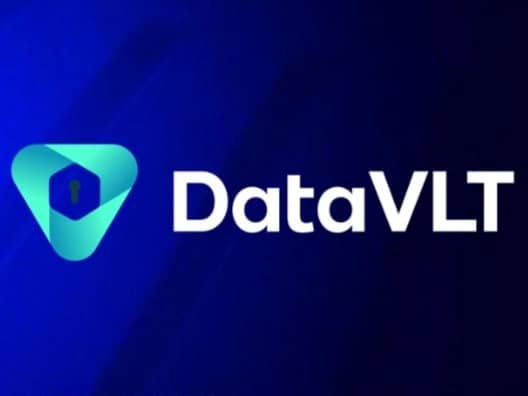订阅 wiki
Share wiki
Bookmark
DataVLT
DataVLT
DataVLT is a platform that integrates Web3 and Artificial Intelligence (AI) to create a decentralized ecosystem for Internet of Things (IoT) devices. The project aims to enable autonomous evolution and interoperability for connected devices through a distributed network and neuro-evolution algorithms. [1] [2]

Overview
DataVLT is being developed as an intelligent hub platform and an autonomous protocol layer designed to address challenges within the global residential IoT device market, which was valued at over $87 billion in 2023. The project identifies key consumer demands and aims to solve persistent issues in the IoT sector, including data silos, a lack of cross-brand device connectivity, and concerns over data privacy and security. By combining AI for autonomous decision-making with Web3 for secure, decentralized connectivity, DataVLT seeks to transition the market from standard home intelligence to a model of "trusted intelligence."
The platform is described as a "cognitive engine for spatial intelligence," intended to create smarter and more user-centric environments where the system can autonomously learn from and optimize connected devices for seamless interoperability. The architecture is designed to be privacy-first and is reportedly GDPR-Web3 certified. [2]
Products
- Intelligent Hub Platform: This is the central system that integrates Web3 and AI to manage the network of IoT devices. It functions as the core infrastructure for device communication, data processing, and autonomous decision-making.
- DID-NFT System: The platform utilizes a system of Decentralized Identifiers (DIDs) based on the ERC-723 standard. These DIDs function as "digital passports" for users, granting them sovereign control over their identity and the data generated by their connected devices. This system is fundamental to the platform's focus on data ownership and privacy.
- Decentralized Certification Lab: DataVLT claims to have established the first decentralized laboratory for certifying the integration and performance of IoT devices within its ecosystem. This initiative is intended to ensure that devices from various manufacturers meet the platform's standards for security, interoperability, and performance before being onboarded to the network. [2]
Features
Autonomous Intelligence
The system's intelligence is driven by adaptive neuro-evolution algorithms, which are intended to allow the platform's AI to be self-evolving. This means the network can learn from new data and device interactions over time, continuously improving its decision-making and operational efficiency without direct human intervention. [2]
Interoperability
A primary goal of the platform is to provide seamless, millisecond-level connectivity across IoT devices from different brands and communication protocols. This is intended to break down the "walled garden" ecosystems that currently dominate the smart home market. [2]
Security and Privacy
DataVLT emphasizes a privacy-first design, incorporating advanced encryption, access control mechanisms, and what it describes as six layers of protection. The project reports a 99.7% security metric for its platform. To further enhance data sovereignty and privacy, future developments are planned to include the integration of Zero-Knowledge (ZK) proofs, which would allow for data verification without revealing the underlying data itself. The project has also mentioned plans for quantum security enhancements to protect the network against future cryptographic threats. [1] [2]
Ecosystem
The DataVLT ecosystem is composed of its core technology, its user base, and the network of connected IoT devices. The platform is built on the BNB Chain, with stated ambitions to operate in a multi-chain environment to enhance scalability and speed. In its communications, the project has referenced technologies like Optimism's Flashblocks as a potential means to achieve faster transaction processing. The ecosystem is designed to be open and self-evolving, promoting a qualitative upgrade in home intelligence by leveraging a Web3 framework to ensure trust and interoperability among various IoT devices and platforms. [2]
Use Cases
- Smart Home and IoT Integration: The platform's primary use case is to break down the isolation between smart devices from different manufacturers.
- Data Monetization: The ecosystem is designed to allow users to earn rewards by contributing anonymized data from their IoT devices to the network. This data can be used to train the platform's AI and provide insights for third-party services.
- Spatial Intelligence: DataVLT aims to create an AI-driven "spatial brain" that can understand and automate actions within a physical space. By processing real-time data from a mesh of connected devices, the AI can learn patterns, anticipate user needs, and manage the environment proactively, such as adjusting lighting and temperature based on occupancy or time of day.
- Automated Equipment Linkage: Through the use of smart contracts, the platform can automate complex interactions and workflows between different devices. For example, a smart lock unlocking could trigger a sequence of events, such as turning on specific lights, adjusting the thermostat, and deactivating a security system. [2]
Tokenomics
DataVLT operates on the Optimism network with a total supply of 1 billion $DATAVLT tokens. The project utilizes a pledge-based mining mechanism to support network participation and security.
- Nodes: There is no upper limit on the number of nodes in the network.
- Pledge Mining:
- Mining requires a minimum pledge of 50,000 DATAVLT.
- Rewards are distributed in proportion to the amount of tokens pledged relative to the total pledged supply.
- Node Requirements: Operators must maintain the minimum pledge and may be required to meet performance and response standards. Node activity and pledge levels are periodically reviewed to sustain network quality. [4]
发现错误了吗?
